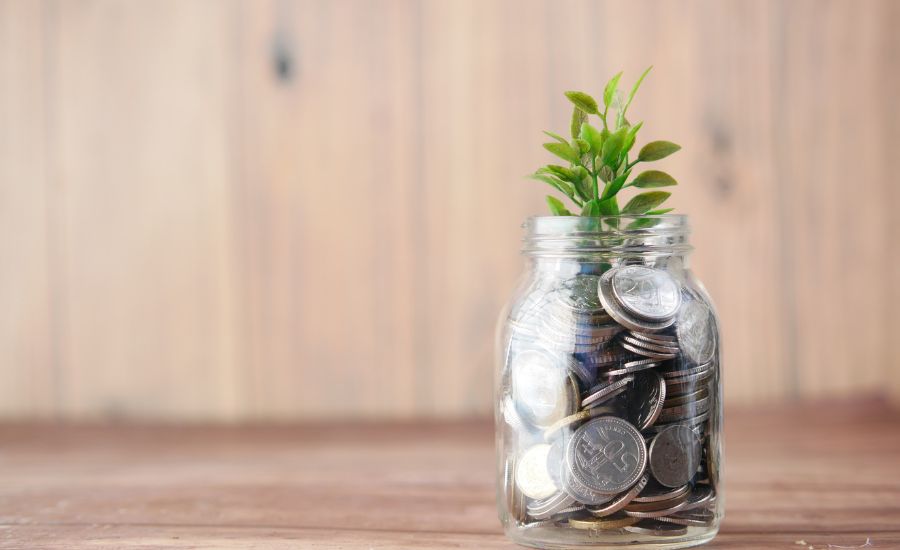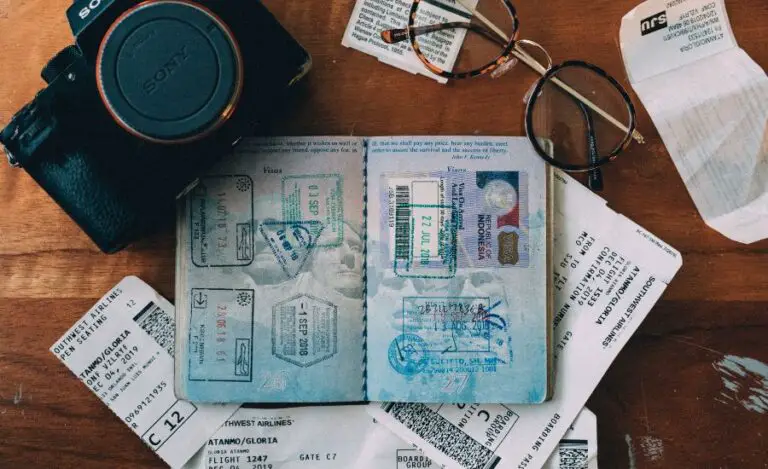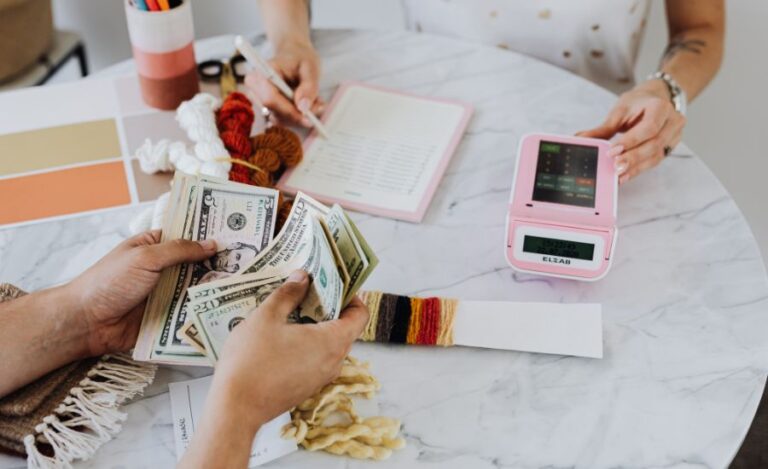Emergency Fund – Why You Need One?

Last Updated: OCT 10th 2025
It’s a no-brainer that every one of us has encountered unforeseen financial emergencies at some point in our lives.
Whether through an unfortunate accident, an unexpected medical cost, a broken appliance, a loss of income, or a broken cell phone, we have all learned how worst that can be.
These out-of-the-blue expenses, knock at the worst possible times when we least expect them!
With that in mind, one crucial measure you can take to safeguard yourself from these worst-case scenarios is to create an emergency fund.
Today I will discuss the benefits, drawbacks, how much emergency savings you might need, and how to set up an emergency savings account.
So, let’s dig in…
What Is An Emergency Fund?
A savings account, aka the emergency fund, assists you in covering for a sudden financial emergency.
You can use these savings as a source of short-term funding to help cover unforeseen obligations without jeopardizing your longer-term financial security.
It is a much better option than opting for loans and getting into debt when these unplanned expenses come.
This will keep you prepared for an unforeseen financial shock if you have a substantial emergency fund.
Related: How To Invest $1000?
Is Emergency Fund Necessary, And WHY?
If you’re reading this, you likely have monthly expenses to bear that are inevitable.
But consider a scenario where you unexpectedly end up losing your job. You would still be responsible for paying the bills, isn’t it?
This is why you need an emergency fund.
The stress can be greatly reduced and the need for debt-accumulating loans can be avoided if you have money to cover expenses during these bitter circumstances.
The following are some other instances of significant, unforeseen expenses where having an emergency fund would be a sigh of relief:
What Costs Ought To List?
You might see some discretionary expenses in your budget that you would cut back on if you encountered an emergency.
These don’t need to be factored into your spending calculations. it’s acceptable for your emergency budget to be more restrictive than your non-emergency budget.
I recommend you not make such drastic cuts that you end yourself in misery. The fund’s goal is to lessen sources of anxiety during an emergency.
It would help to consider how your situation might alter in a crisis. You might, for instance, relocate to live with relatives to save money.
Calculating Emergency Reserves
Make a $500 emergency fund your first step. You can increase it steadily to provide yourself with a six-month buffer if necessary.
This is exactly I started building up my emergency fund back in 2020, and it has worked wonders for me!
I Should Keep My Spending…. For How Many Months?
Building an emergency reserve of one month’s worth of costs is advised if you are currently paying off debts.
Achieving this will lessen the likelihood that more borrowing will be required to handle emergencies.
Three to six months’ worth of spending is usually I recommend to my friends and family.
Your situation and risk tolerance will determine how much emergency funding you need.
For instance, if you have family assistance to fall back on, you could feel more at ease with a smaller emergency fund than if your family depends on you.
Pros & Cons of Emergency Funds: Is It Worth It?
While maintaining an emergency fund requires you to set aside some of your monthly income, it also prepares you for any unforeseen financial calamity in the future.
More advantages and disadvantages of emergency money have been discussed below.
Benefit of Having Emergency Funds Money
Emergency Funds’ Drawbacks-
How To Build A Fund For Emergencies?
Starting small with whatever you can afford is the most effective strategy for building an emergency fund.
For things, calculate your spending over the past three months to determine your realistic spending level.
This will help you determine how much you should start saving.
For starters, the amount of money you can comfortably save each month can be determined by creating a budget plan.
Determine your expenses
If you follow the advice of financial experts, you should strive to create an emergency fund with enough money to cover at least three months’ worth of expenses.
First, you must determine your monthly expenses and multiply them by three.
Now you will know what the starting point should be. Aim for a round, manageable amount if this is too much or the final result overwhelms you immediately.
Anything is preferable to nothing when it comes to emergency finances.
Understand what an emergency is
A clear plan (and a certain amount of trust if it’s joint emergency savings) must be in place whether you’re creating your emergency fund or one with your family or partner.
Regarding the plan, you should agree on what constitutes an “emergency” and, consequently, when the funds in the account may be used.
Better off, you might be better off saving for yourself or getting unbiased financial counsel if you’re unsure about saving with someone else.
Keep your emergency fund active
Your ability to defend your house or yourself in any circumstance is the goal of an emergency fund.
In light of this, it’s crucial to maintain it even after an emergency has occurred. Unfortunately, you might even have more than one emergency to handle.
Initiate keeping money aside
You can start setting away money now that you know the amount you need to save and have taken it into account in your monthly spending plan.
Having a target date in mind and benchmarks to hit is frequently helpful for saves.
It can be beneficial for you to maintain a separate savings account where you can safely keep the money you are accumulating for your emergency needs.
This lessens the desire to squander your pot and can even let you earn interest on your money.
Related: 9+ Ways To Live Within Your Means
Should I Store It Somewhere Else?
Your situation will determine where you keep your emergency savings.
This fund needs to be secure, easily accessible, and out of the way so you won’t be tempted to use it for things other than emergencies.
You can pick the one that makes the most sense for you from the following options for where to deposit your emergency funds:
Account With A Bank Or Credit Union
If you have an account with a bank or credit union, then it is typically the the safest locations to hold your money.
I recommend you maintain this as a separate account where you can retain and manage this cash with ease.
Cash
Another great alternative is storing some physical cash for dead emergencies, either at home or with a dependable family member or friend.
But, remember that cash is susceptible to theft, loss, and destruction, so be a tad bit careful with that!
What Should You Do With Your Emergency Fund?
For the record, convenient savings account with a high-interest rate. Having immediate access is essential because emergencies are the most uncertain and unpredictable.
To avoid this, you shouldn’t make the mistake investing these in a long-term fund.
Added to that, make sure this emergency fund account should be separate from the ones you often use for daily transactions.
This is so that you won’t be tempted to utilize the emergency reserves.
Your money is best off in a high-yield savings account.
For starters, it is well protected by Federal Insurance of up to $250,000 per depositor.
When needed, you can rapidly access your cash with a withdrawal or a funds transfer while the money earns interest when not in use.
Conclusion
Anything that involves high risk, like equities investing, peer-to-peer lending, or cryptocurrencies, is a bad space for your emergency funds.
You don’t want your emergency savings to get depreciated.
Also, anything with access limits, such as savings accounts with withdrawal notice periods, is a also poor choice.
So, try to avoid these options while stacking up your emergency funds!


